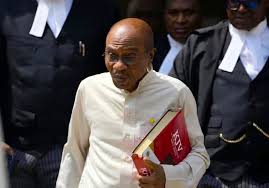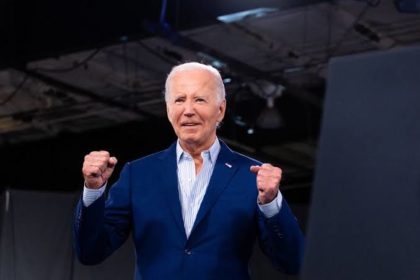The Lagos State Special Offences Court in Ikeja has set January 7, 2025, as the date for delivering its ruling on the objection raised by former Central Bank of Nigeria (CBN) Governor, Godwin Emefiele, over the court’s jurisdiction in the high-profile $4.5 billion and N2.8 billion fraud case brought against him by the Economic and Financial Crimes Commission (EFCC).
Emefiele, who is facing 26 charges alongside his co-defendant Henry Omoile, continues to be at the center of a case that has drawn significant public and legal scrutiny. The charges, filed by the EFCC, include allegations of abuse of office, conspiracy, and financial impropriety, which prosecutors claim contributed to massive economic losses during his tenure as head of the apex bank.
At Thursday’s proceedings, Emefiele’s legal team, led by senior lawyer Olalekan Ojo (SAN), mounted a strong objection to the court’s jurisdiction, challenging the legitimacy of hearing the matter in Lagos. Ojo contended that the alleged offenses took place outside the territorial jurisdiction of the Ikeja Special Offences Court, rendering the trial venue improper.
“The court lacks territorial jurisdiction to entertain these charges,” Ojo stated firmly, arguing that the offenses cited by the EFCC occurred outside Lagos State. He further submitted that portions of the charges were in violation of Section 36(12) of the Nigerian Constitution, which stipulates that no person can be tried for actions that do not constitute a recognized legal offense.
Ojo further questioned the validity of Section 73 of the Criminal Law of Lagos State 2011, insisting that the Lagos State House of Assembly lacked the legislative authority to enact laws on matters contained in the Exclusive Legislative List, such as those involving financial crimes. As such, he urged the court to strike out counts one to four of the amended charge sheet filed on April 4, 2024, arguing that they were legally unsustainable.
In a swift and robust rebuttal, EFCC lead prosecutor Rotimi Oyedepo (SAN) defended the court’s jurisdiction, insisting that the charges fell squarely within the EFCC’s mandate to prosecute economic and financial crimes. Oyedepo argued that the offenses outlined in the charge sheet occurred within the territorial jurisdiction of Lagos, supported by testimonies and evidence already before the court.
“The defense has presented objections without factual merit. The EFCC has thoroughly investigated this case, and the evidence confirms that this court is the proper venue to hear these charges,” Oyedepo asserted. He further emphasized that Lagos, as a commercial nerve center, has consistently been an appropriate jurisdiction for prosecuting offenses of this nature, particularly when they involve economic losses that transcend geographic boundaries.
Thursday’s legal arguments underscore the jurisdictional complexities often associated with high-profile financial crimes in Nigeria. The case against Emefiele has remained a focal point in public discourse, with widespread interest in its outcome due to the former governor’s pivotal role in Nigeria’s economic policies and financial management.
Justice Rahman Oshodi, after carefully listening to submissions from both sides, adjourned the matter to January 7, 2025, promising a ruling that will determine whether the case will proceed in Lagos or face a jurisdictional shift.
Legal analysts suggest that this ruling could set a significant precedent for how financial crime cases are geographically adjudicated in Nigeria.
The charges against Emefiele stem from allegations of financial misconduct during his tenure as CBN governor, a period marked by economic turbulence, controversial monetary policies, and questions surrounding transparency.
The EFCC alleges that funds amounting to $4.5 billion and N2.8 billion were mismanaged, leading to massive economic losses. Emefiele, however, has consistently denied the allegations, maintaining his innocence and arguing that the charges are politically motivated.
This case has wider implications for Nigeria’s ongoing fight against corruption, particularly at the intersection of political power and financial institutions. Advocacy groups and observers are closely watching the proceedings, emphasizing the need for transparency, due process, and accountability in the judicial system.




